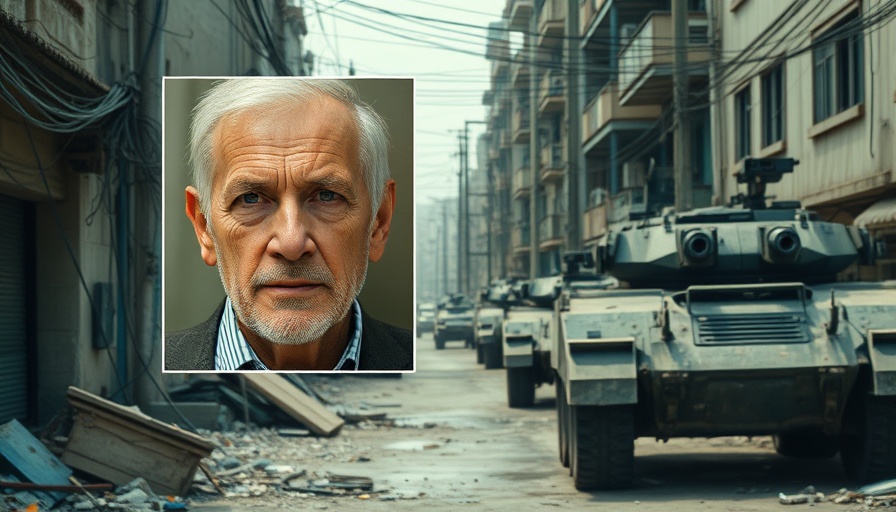
Understanding the Revocation of Legal Status for Haitian Immigrants
In a shocking turn of events, Haitian permanent resident Jean Philippe's immigration status was revoked by the U.S. Immigration and Customs Enforcement (ICE) due to accusations of supporting violent gangs in his home country. The situation highlights the complexities surrounding immigrant status in the U.S., raising questions about how legal protections can intersect with alleged criminal activities.
The Context of Violence in Haiti
The circumstances leading to ICE's decision stem from ongoing gang-related violence in Haiti. Over the past few years, this Caribbean nation has seen a surge in violence, especially from gangs controlling significant areas. This chaos has prompted many Haitians to flee their homeland in search of safety. However, as illustrated by Philippe's case, those who legally reside in the U.S. are not immune from scrutiny if they are perceived as fostering the very instability they sought to escape.
Examining Immigration Policies in a Complex World
The Biden administration’s approach to immigration has undergone significant changes, aiming to strike a balance between safeguarding the rights of immigrants and ensuring national security. However, high-profile cases like Philippe's underscore the challenges faced by officials tasked with navigating a system often seen as overly bureaucratic or unjust. Critics argue that such actions transform immigrants into scapegoats amidst a broader narrative of crime, while supporters insist on the necessity of strict assessments to maintain public safety.
The Societal Impact of Revocations Like Philippe's
Philippe's sudden removal not only affects him personally but also raises alarms within the Haitian-American community, amplifying fears surrounding immigration enforcement. Many in this community feel vulnerable, questioning what protections remain for them in an environment where allegations can lead to swift revocation of legal status. The punitive measure reflects a broader sentiment that immigrants, legal or not, are often caught in the crosshairs of political agendas.
Deconstructing Misconceptions About Immigrants
Common misconceptions portraying immigrants as solely responsible for rising crime rates deserve a critical examination. Studies show that immigrants contribute positively to communities by participating in the labor force and enriching local culture. Instead of being portrayed as threats, Mike Gomez, an immigration lawyer, reminds us that many immigrants seek refuge from violence, seeking the American dream rather than perpetuating cycles of crime.
Future Trends in Immigration Policy
Looking ahead, the implications of such revocations could instigate broader immigration reforms. Given the rising tensions around crime and safety in immigrant communities, advocates call for policy changes that not only respect the rights of immigrants but also ensure stringent background checks. Community leaders suggest that facilitating pathways to citizenship could offer stability while addressing public safety concerns in a nuanced manner.
Call to Action: What Can Be Done?
As discussions around immigration policy continue, it is crucial for communities to engage in dialogues about the role of immigrants in society. By focusing on policy reform and community safety, we can foster a more inclusive environment. Educating local and national stakeholders about the complex backgrounds of immigrants could help mitigate fear and promote better understanding. Join community forums and advocate for policies that protect the rights of all individuals while acknowledging valid concerns for public safety.
 Add Element
Add Element  Add Row
Add Row 



Write A Comment